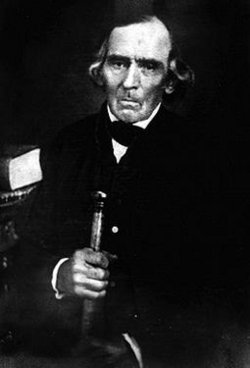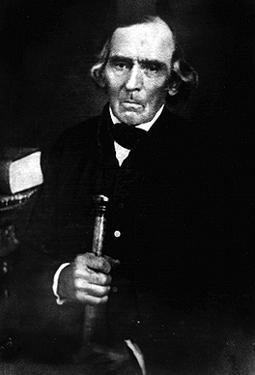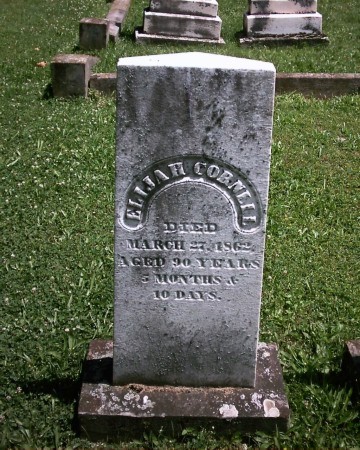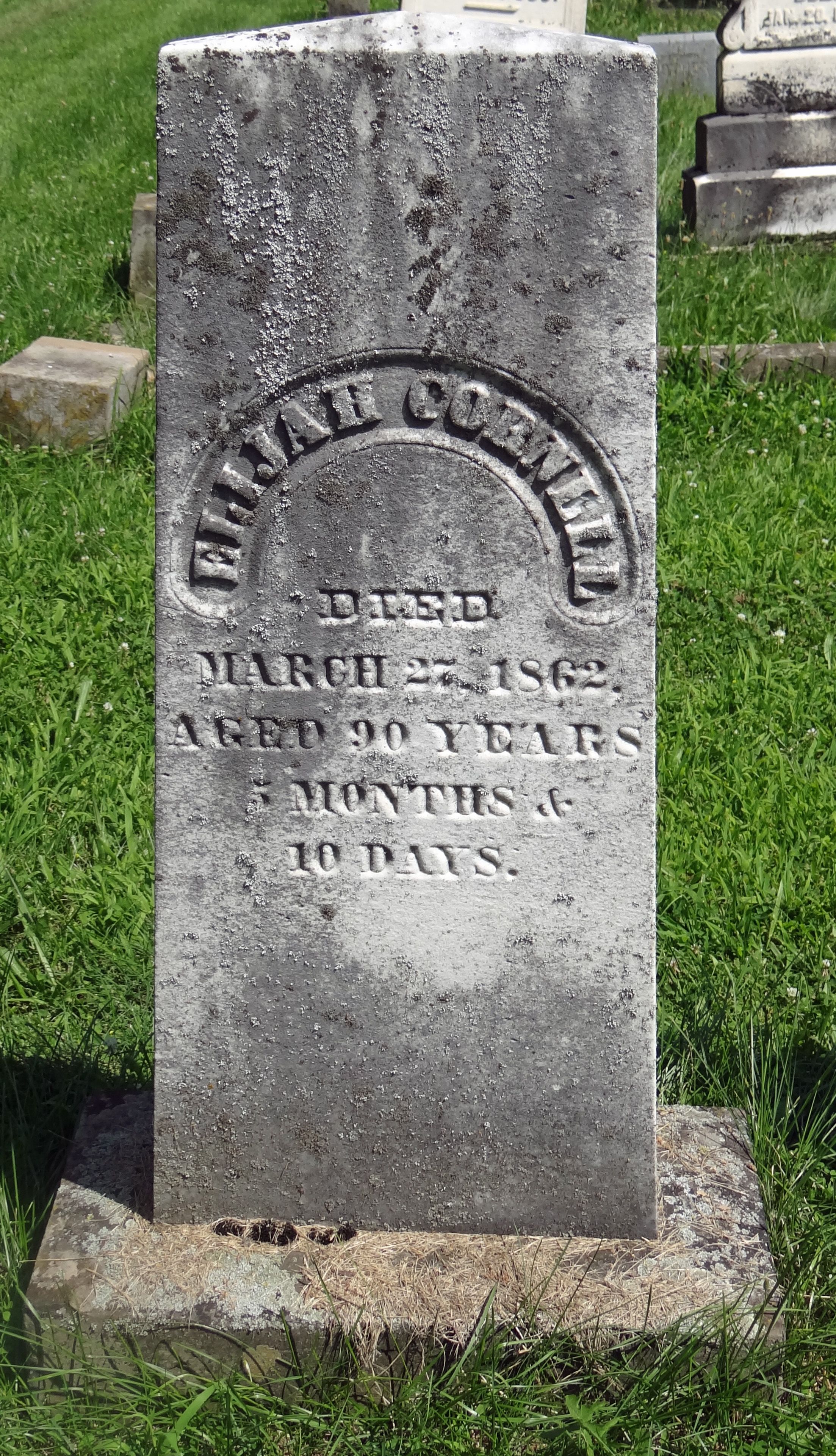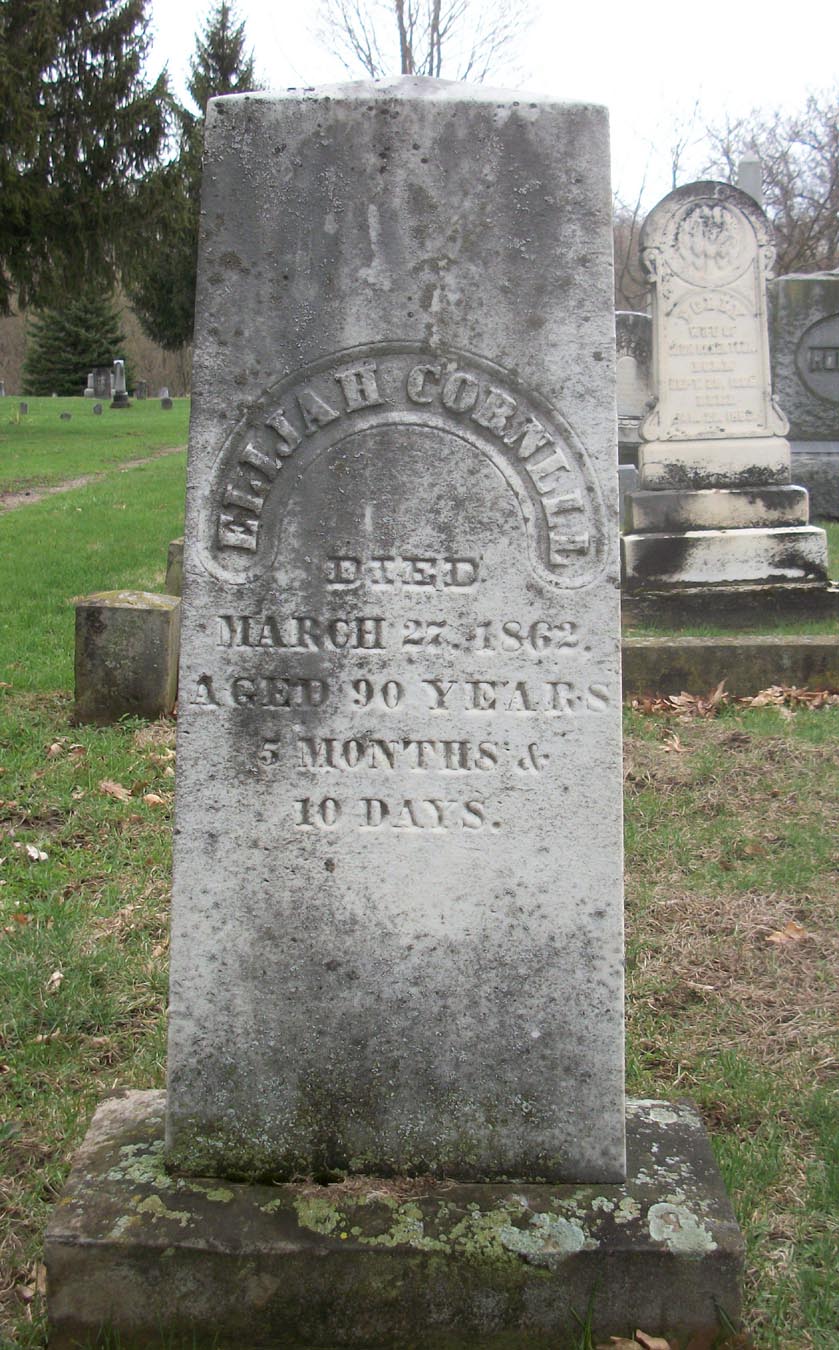Albion,MI 100 Years Ago - OCTOBER 1904
Morning Star, October 10, 2004 pg. 23
"The death last week of A. B. Cornell, ex-governor of New York, awakened remembrances among some of Albion's oldest citizens. Mr. Cornell was a son of Ezra Cornell, the founder of Cornell College. Ezra Cornell was president of the old Erie & Michigan telegraph company, established in 1846 and made his headquarters here in Albion. His father and mother are buried in the Wood lot in Riverside Cemetery. Mr. Orson B. Wood, who is a cousin of Ezra Cornell, has the original stock subscription book of the Company, with the signatures of the subscribers of stock. Such names as S. B. Morse, the Morse code man, and Amos Kendall, the famous lawyer, are attached."
Elijah Cornell was born in Swansea, Bristol County, Massachusetts, the second son of Massachusetts farmers. Of Puritan origins, the family had early joined the Society of Friends.
At the age of nineteen, Elijah was apprenticed to a potter, a trade he pursued for most of his life.
In 1805, he married Eunice Barnard, whose family primarily included seamen and farmers. Elijah was thirty-four; Eunice was seventeen. They were married for nearly fifty-two years and had eleven children, six sons and five daughters, all of whom lived to adulthood.
After losing money in a ship venture with his older brother, Elijah Cornell decided in 1807 to go west. There was still cheap wild land available in central New York, and Quakers from Columbia and Dutchess County had formed a settlement in De Ruyter, Madison County. The Cornells, with their first child,infant Ezra, made the three-week journey overland by team and wagon, purchasing 150 acres on Crum Hill, about three miles east of the village, for $375. In 1810, they returned east, but they came back to De Ruyter in 1818.
In 1810, Elijah Cornell was employed as foreman in a pottery in Westchester Village, and the following year he set up his own earthenware factory in Tarrytown.
The War of 1812 halted imports of pottery, which increased the demand for the cheap brown earthenware made locally. Elijah also worked at the Queens Ware Pottery in West Farms, where he learned to produce a high-grade white ware. With the end of the war, the market was flooded with cheaper English ware. Elijah Cornell decided to move to New Jersey, where there might be a better market. Ezra, the eldest child, helped his father at his trade, running errands and even serving as a traveling salesman for his father. The Panic of 1819 further reduced the pottery market, and the Cornell family again went west to De Ruyter.
Conditions of pioneer farming were difficult. Ezra and his younger brother Elijah had to clear land so they could plant corn among the stumps. Only in the winter months could the children attend the local school. But there were opportunities for recreation: hunting and fishing, quiltings, apple bees, barn and house raisings, and other gatherings, and Quaker meetings.
In 1842, with the help of his sons, Elijah Cornell built a small pottery in Ithaca.
Information from the Cornell University Archives
Contributed by Starfishin [#48860385]
Albion,MI 100 Years Ago - OCTOBER 1904
Morning Star, October 10, 2004 pg. 23
"The death last week of A. B. Cornell, ex-governor of New York, awakened remembrances among some of Albion's oldest citizens. Mr. Cornell was a son of Ezra Cornell, the founder of Cornell College. Ezra Cornell was president of the old Erie & Michigan telegraph company, established in 1846 and made his headquarters here in Albion. His father and mother are buried in the Wood lot in Riverside Cemetery. Mr. Orson B. Wood, who is a cousin of Ezra Cornell, has the original stock subscription book of the Company, with the signatures of the subscribers of stock. Such names as S. B. Morse, the Morse code man, and Amos Kendall, the famous lawyer, are attached."
Elijah Cornell was born in Swansea, Bristol County, Massachusetts, the second son of Massachusetts farmers. Of Puritan origins, the family had early joined the Society of Friends.
At the age of nineteen, Elijah was apprenticed to a potter, a trade he pursued for most of his life.
In 1805, he married Eunice Barnard, whose family primarily included seamen and farmers. Elijah was thirty-four; Eunice was seventeen. They were married for nearly fifty-two years and had eleven children, six sons and five daughters, all of whom lived to adulthood.
After losing money in a ship venture with his older brother, Elijah Cornell decided in 1807 to go west. There was still cheap wild land available in central New York, and Quakers from Columbia and Dutchess County had formed a settlement in De Ruyter, Madison County. The Cornells, with their first child,infant Ezra, made the three-week journey overland by team and wagon, purchasing 150 acres on Crum Hill, about three miles east of the village, for $375. In 1810, they returned east, but they came back to De Ruyter in 1818.
In 1810, Elijah Cornell was employed as foreman in a pottery in Westchester Village, and the following year he set up his own earthenware factory in Tarrytown.
The War of 1812 halted imports of pottery, which increased the demand for the cheap brown earthenware made locally. Elijah also worked at the Queens Ware Pottery in West Farms, where he learned to produce a high-grade white ware. With the end of the war, the market was flooded with cheaper English ware. Elijah Cornell decided to move to New Jersey, where there might be a better market. Ezra, the eldest child, helped his father at his trade, running errands and even serving as a traveling salesman for his father. The Panic of 1819 further reduced the pottery market, and the Cornell family again went west to De Ruyter.
Conditions of pioneer farming were difficult. Ezra and his younger brother Elijah had to clear land so they could plant corn among the stumps. Only in the winter months could the children attend the local school. But there were opportunities for recreation: hunting and fishing, quiltings, apple bees, barn and house raisings, and other gatherings, and Quaker meetings.
In 1842, with the help of his sons, Elijah Cornell built a small pottery in Ithaca.
Information from the Cornell University Archives
Contributed by Starfishin [#48860385]
Gravesite Details
The father of Ezra Cornell, founder of Cornell University. Parents: Elijah & Sarah (Miller) Cornell. Wife: Eunice Barnard m. 7/4/1805 d. 1857. Daughters buried Riverside Cemetery: Phebe Wood #7188013, Jane Finch, Mary Robertson.
Family Members
-
![]()
Ezra Cornell
1807–1874
-
![]()
Elijah B. Cornell
1808–1889
-
![]()
Jesse Cornell Sr
1811–1891
-
![]()
Benjamin Cornell
1812–1842
-
![]()
Lucretia Cornell Chace
1813–1845
-
![]()
Phebe Cornell Wood
1816–1891
-
![]()
Mary Cornell Robertson
1818–1897
-
![]()
Deborah Cornell Wood
1820–1909
-
![]()
John Hewitt Cornell
1827–1902
-
![]()
Sgt Daniel B. Cornell
1830–1900
-
![]()
Jane Cornell Finch
1831–1892
Advertisement
Advertisement
